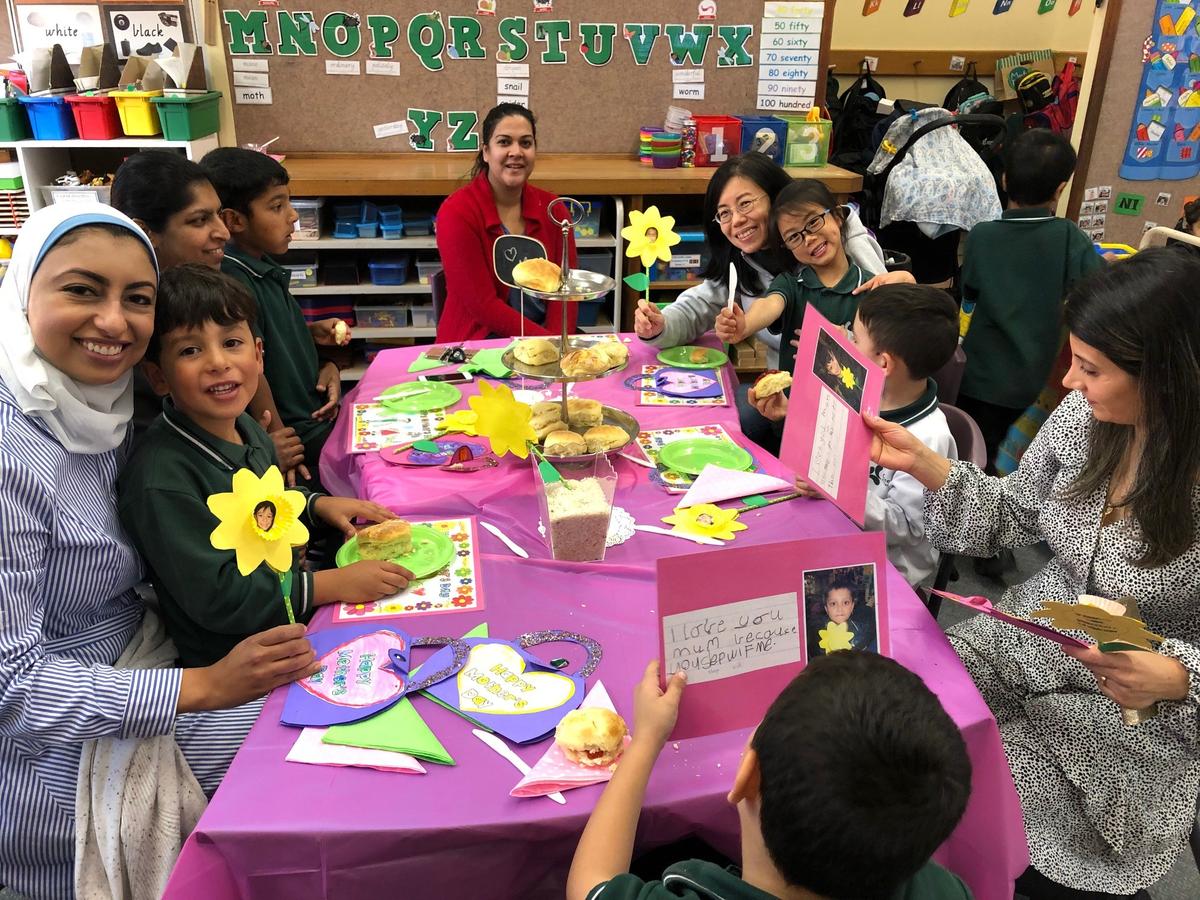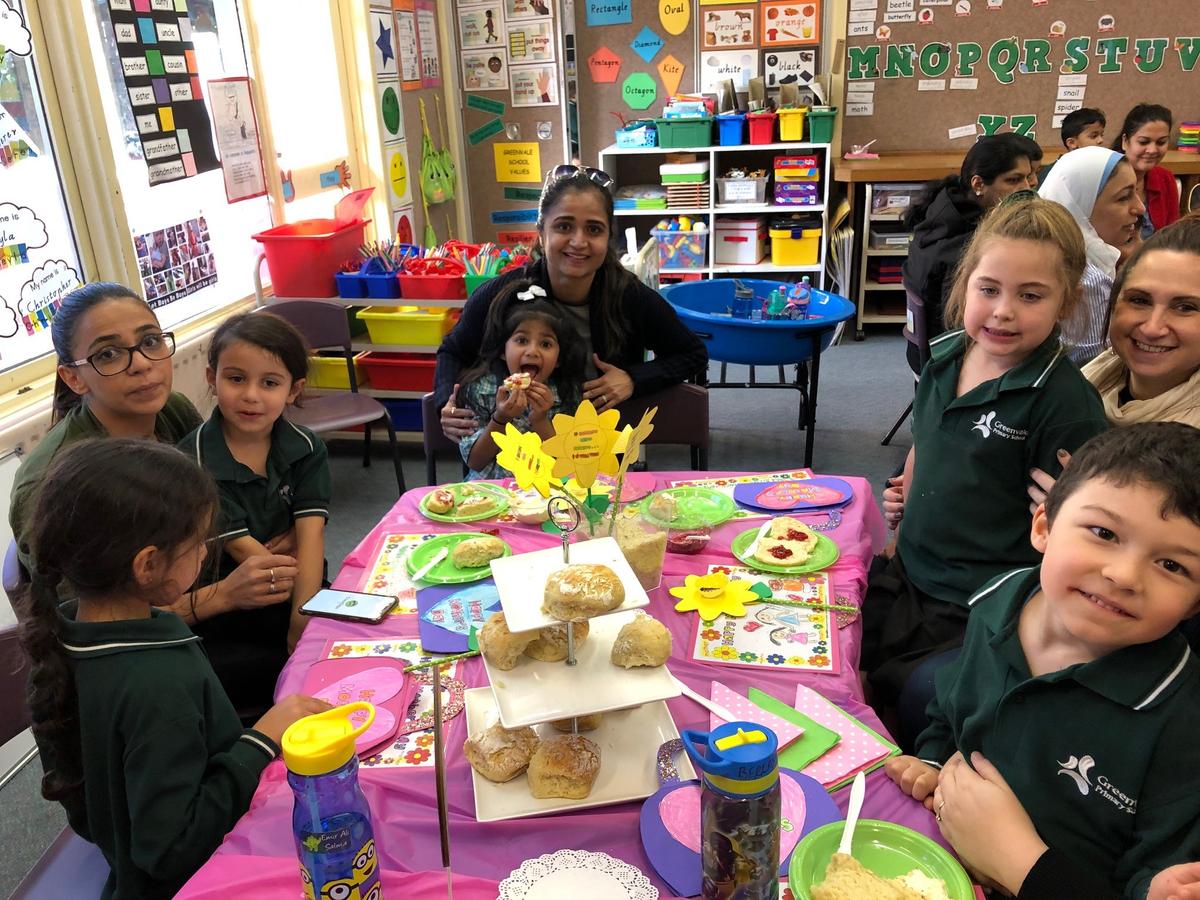Principal's Update
Meredith Clegg
Acting Principal

Principal's Update
Meredith Clegg
Acting Principal
Angie will be out of the school for the next three weeks to work at the North Western Regional Office as a Senior Education Improvement Leader. In her role there she will oversee 20 Primary and Secondary Schools in the Hume Network and will get to experience the inner workings of the Department of Education.
While Angie is away, Meredith Clegg will be Acting Principal, Rosemary Agnew will continue as Assistant Principal, and Gabby Tigafua will step up to Acting Assistant Principal.


Education Week is all about celebrating careers and pathways that will make a dream job come true. During the week of May 19 – 25 there will be a number of activities happening across the school.
Great to see all the fathers of Foundation students who came to school last week on Wednesday to help bake scones for the mothers to have for their Devonshire Tea to be held at school that afternoon. As you can see, the High Tea held in each Foundation classroom was very well attended and the scones were enjoyed by all the guests.To all the mothers in our community, I hope you were spoilt on Mother’s Day last Sunday.






Greenvale Primary School were once again the champions of the District Cross Country Championship held on 3rd May. Congratulations to Mr. Carroll and all our competitors who contributed points to this win and good luck to those who have advanced to compete at the Divisional Cross Country.
If your child feels anxious, reassure them that these feelings are a normal response to new people, events or potentially challenging situations. Help your child understand that there is a great deal they can do to manage their anxious feelings, so they can get on with the activities they enjoy.
Explain Anxiety
If your child is anxious he may struggle to explain how he feels. An important first step in anxiety self-management is explaining to your child how anxiety works.
Help recognise anxiety-inducing events
There are many things that can evoke anxiety in your child, including:
Help your child to recognise the specific situations and events that make them feel anxious such as meeting new friends, sitting tests and fear of rejection. In this way you can help your child manage and minimise their feelings of anxiety.
Respond with empathy
When your child feels anxious, the part of the brain that controls rational thinking, decision-making and concentration temporarily goes offline. They can feel easily overwhelmed by simple, everyday events and situations. Rather than protecting your child by allowing them to avoid meeting these challenges, or dismissing them as trivial, validate their feelings with statements such as:
Resist the temptation to rescue or fix a situation. Respond with empathy and understanding to your child’s concerns.
Manage anxious moments
Help your child develop the tools to regulate and push their anxious feelings to the background. Practise these anxiety management tools when your child is feeling calm, and it will be easier for them to practise when they are nervous. These include:
Get the fundamentals right
Sufficient sleep, good nutrition and exercise are essential for anxious kids. Support your child to adhere to their optimal bedtime so they wake naturally each morning, reduce sugar, take care of their gut health through good nutrition and encourage regular exercise for optimal mental health. There is a great deal you can do to help your child manage their anxiety. Start by assisting your child to understand the fundamentals of anxiety, show your genuine understanding of their feelings and be ready to support them emotionally to push their anxiety to the background.
(Ref: Parenting Ideas)
We are all very saddened by the recent passing of one of our parents, Ahmad Akl. Our heartfelt sympathy goes to his wife Barbara, his children Jasmine, Layla and Adam, his extended family and to his friends. He will be missed by many. Should you or your child/ren feel that you need professional counselling there are a few contactable services such as Kids Help Line 1800 551 800, Griefline 9596 7799 and Orygen 1800 888 320.
On behalf of the school community, we would like to congratulations Shannon Carroll and his wife Mel on the most welcomed arrival of their first child, a gorgeous boy Mikail who was born on Wednesday 15th May at 1:55am.


Food For Thought:


Regards
Meredith Clegg - Acting Principal